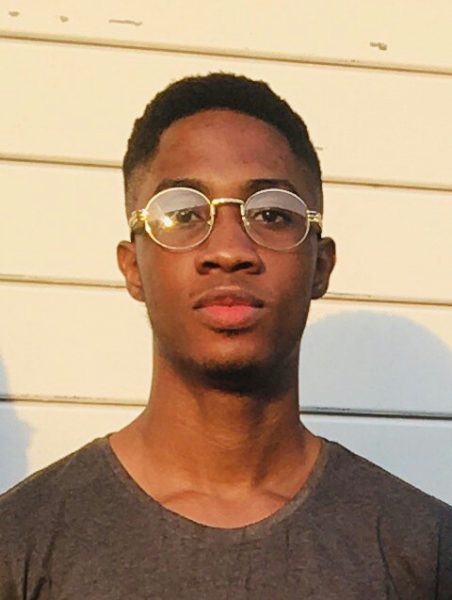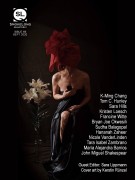This story is awash in gorgeous details, but the opening paragraph, in particular, is so vivid and arresting. Is that what came first or was there some other seed for this story?
Surely, there were other seeds for this story. For one, I wanted to begin with the war, to write mostly about pain and loss, but there would be too much to tell, too much to say about a war that hunts Nigeria to this today. Writing about the end of the war is somewhat unnerving but still a good way to capture the Biafran story in less than a thousand words. I had always wanted to tell the Biafra story, to be part of it in a way that remembers everything. And I thought, what better way than to tell it with an eccentric queerness; the other half of a yellow sun.
The affair between Segun and our protagonist began in a moment of extreme vulnerability, as Segun is found out as the enemy in enemy territory. Can you talk about this relationship between love and vulnerability? Does Segun’s vulnerability force a kind of intimacy between them?
I think love and vulnerability are mutually inclusive concepts. A person can love as much as to feel vulnerable, and vice versa. I think what matters a lot is how one handles the situation. In the story, the characters put aside the war and embrace love until the end of the war and it dawns on them when they are faced with choosing between love and reality. You see, vulnerability can blind, like love.
I don’t think Segun’s vulnerability forced the intimacy. I think it is one thing to be at war, feeling pain and hunger and loss become normalcy and it is quite another thing to find humanity on another’s face in the midst of war. The intimacy wasn’t forced. It had a natural bearing to it, one that transcends the raging war, tribe, or sex. I mean, fighting their feelings is to start another war within each other, one they could probably win but regret.
The question of loving one’s country has always struck me as fascinating. For one, I’m not sure what is meant by “country”—is it its people, its geography, the stories it tells about itself? At one point, your protagonist asks Segun “… how someone can love a country and hate its people.” Can you elaborate on this question, what Segun’s answer might be, and what “country” might mean amidst civil war?
Chuckles. I wrote that question from a bit of mild extrospection, taking my country, Nigeria, as a case. To live here is to be happy and sad and mad (metaphorically). It is to hate it and love it at the same time.
What is there to love? The country’s naturalness that embraces; when it is cold, it is really cold, when it is hot, it is really hot, and when you cut open an orange, its nutrients hit you before the juice. In Bayelsa, the smell of fish is not always foul. Anambra is a visage of rolling brown dusts topping hills in Enugu till it turns red. Kano and Katsina means meat and cows and more meat. Lagos and Calabar are people breathing noisily. Ogun is home.
What is to hate? The people. Two-faced. Three-faced. Faceless. Lust. Power. Money. Betrayal. Hate. Then, there are those who guard their heart from losing their humanity, so few, they are regarded as poets and storytellers and children who ask, “Who is God?” They sometimes fail.
So, can one love a country and hate its people? Yes. Amidst civil war, country could mean a will, not to unite but to survive.
Their affair ends with the war. Our protagonist wonders what was worse about this affair—that it was queer or treasonous? This would have been back in 1970. Where do you imagine these characters now?
I can’t really say much about sexual Nigeria in 1970, but I bet it was homophobic as it was prejudicial, judging from how the characters were discreet about their affair and the status quo today. The ending of the story broke me, that Segun had to leave. That their love was something that lived in a time of so much pain and blood and death. That they may never see each other again. That the war took everything and gave them nothing.
But I can imagine both of them, sexagenarians, living lives dictated by the society. I imagine them trying to put together their broken spirit over the years, bit by bit, and sometimes watch it crumble. I can imagine them telling their wives ‘I love you’ although they do not mean it because their love died with Biafra and Nigeria saying, “No victor, no vanquished.” I imagine pain and I wish them lots of strength. And love.
What art (books, music, film, anything) is currently inspiring you?
Mostly realist works. I have decided to devote my art to telling lots of queer stories, and when these stories come in flashing rhythms, I write them as poems.
I adore works of Chimamanda Ngozi Adichie. Her art is so human, it breathes. Half of a Yellow Sun is a favorite. Also, Binyavanga Wainaina (may he rest well) creates excellence. His art is as queer as how he uses full stops, indiscriminately. His work, One Day I Will Write About This Place, is another favorite of mine. I love him. Others are Troy Onyango, Lesley Nneka Arimah, and Arinze Ifekandu.
I am currently working on a chapbook, a collection of queer poems titled, Hello, welcome home, inspired by Billie Eilish’s song, “Lovely.” Romeo Oriogun’s chapbook, Burnt Men, is so beautiful, an aid to actualize this chapbook. Also, I love Ojo Taiye’s imaginative depth. His book, All Of Us Are Birds and Some Of Us Have Broken Wings, still triggers my thoughts. Others are Chinua Ezenwa-Ohaeto, JK Anowe, and Chibuihe Obi.



